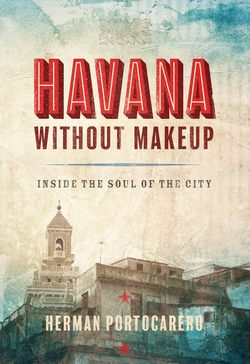Читать книгу Havana without Makeup - Herman Portocarero - Страница 9
На сайте Литреса книга снята с продажи.
Оглавление2.EXCEPTIONAL
It’s not easy to define one’s loyalties when it comes to Cuba, especially when one has had a long and intricate relationship with the country and its people. One might begin with a simple and abstract idea, such as “I wish the best possible future for Cuba.” But the sentiment becomes complicated almost immediately.
Over more than half a century, so much of the country’s personality has been built up in sheer opposition to the United States that the main question becomes: How will that personality survive in the long run, once that opposition is removed? How will Cuba define herself once freed from that contradiction?
Many societies throughout history have defined themselves in opposition to an outside enemy. It’s one of the oldest political games on the planet.
But Cuba’s case is extreme: a small island state has built an iconic image for itself, and had a global impact on the collective imagination, by opposing the superpower next door. For an apt comparison in ancient history, we might imagine a bold Sicily resisting and taunting a Roman Empire unable to subdue it.
Cuban exceptionalism – the belief in the uniqueness of the island – has some justification in history. Cuba developed differently from other Spanish colonies. Its struggle for independence came much later than in the rest of Latin America, and took a different form. Nor did it share much history with the other Caribbean islands. Slavery was different here, and Cuba was more mixed and diverse than the other islands; it was always a global crossroads and an outward-looking society. Though conditions were harsh for many or most, it was also characterized by a pursuit of pleasure. Early on, its beliefs became a mixture of the European and the African. Havana always lived on the quick wits of its inhabitants as much as on the gold of traders and speculators.
The communist dogmatism imposed by Fidel’s unyielding personality had nothing in common with Havana’s opportunism as a port city, absorbing languages, attitudes, and fashions with the ease of a wild child roaming the quaysides and gladly dancing and sleeping with the enemy, as the city had done during the brief British occupation of 1762. Even today the Castros – second generation immigrants in Cuba – define themselves as stubborn gallegos, sons of the hard-working, no-nonsense northern Spanish region of Galicia.
Heroism, subversion and seduction became shared national traits of the new Cuba, however mutually contradictory. Centuries of day-to-day survival skills were honed to a fine art during years of penury, as became obvious in the 1990s when the collapse of the Soviet Union, Cuba’s then near-exclusive economic and political partner, plunged the island into a deep economic crisis.
One can’t help but wonder how all those contradictions will play out in the future.
